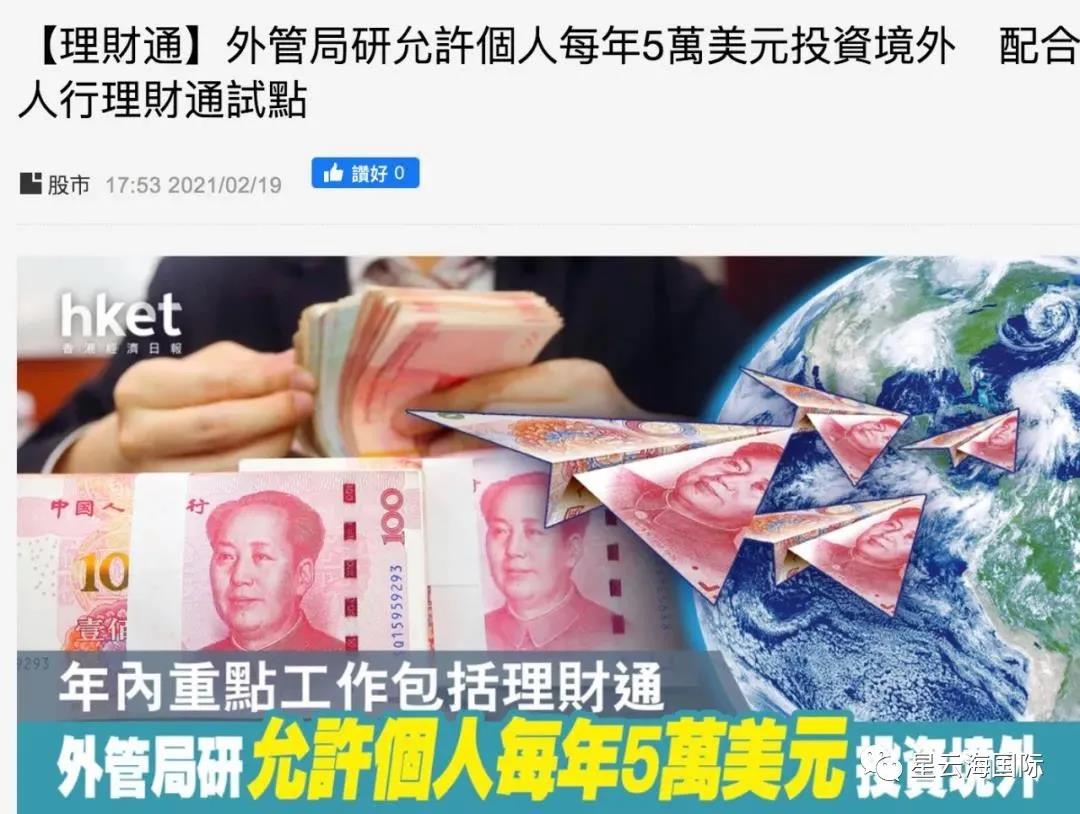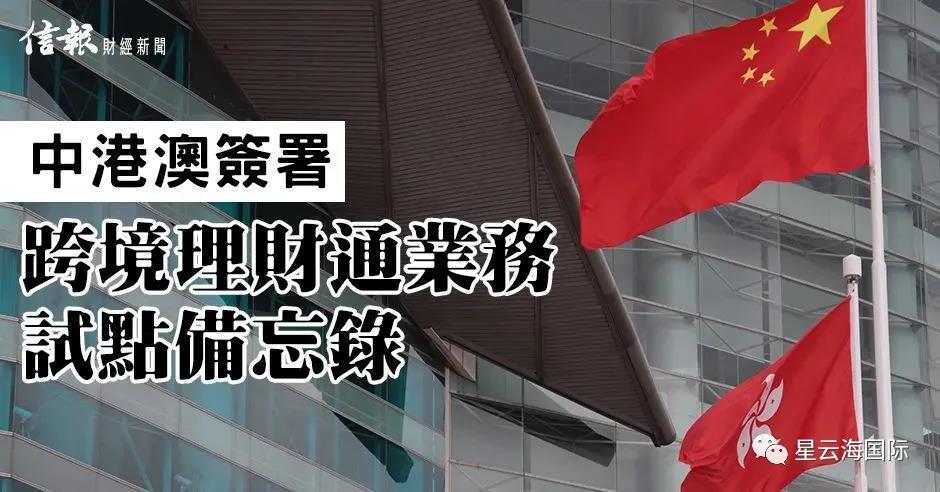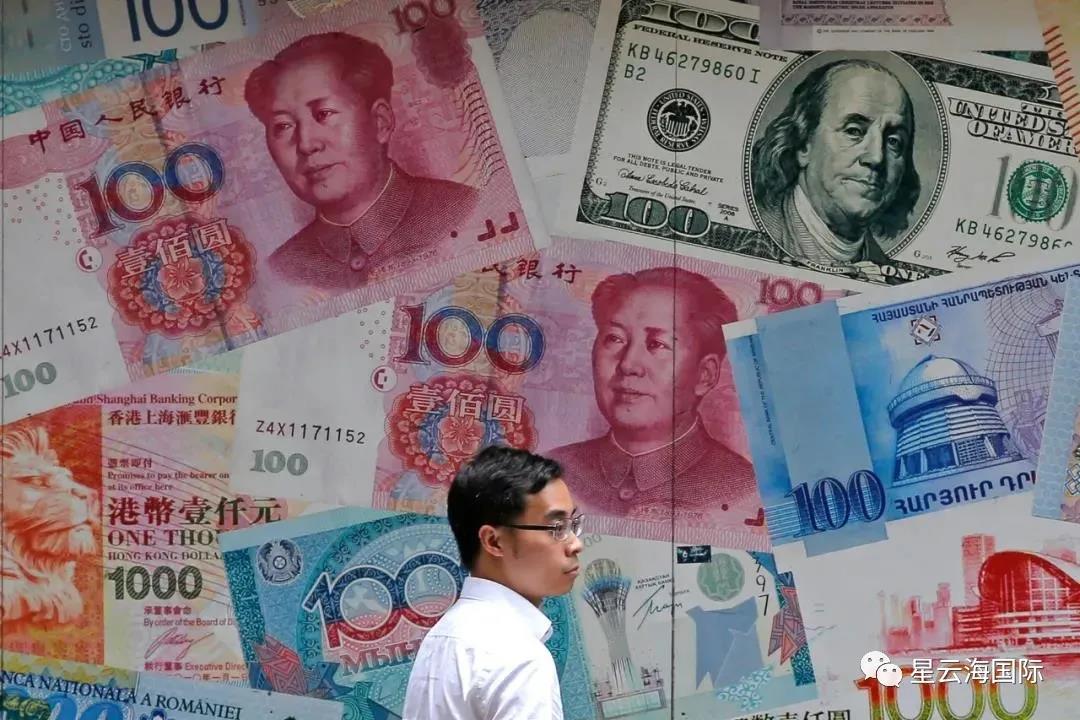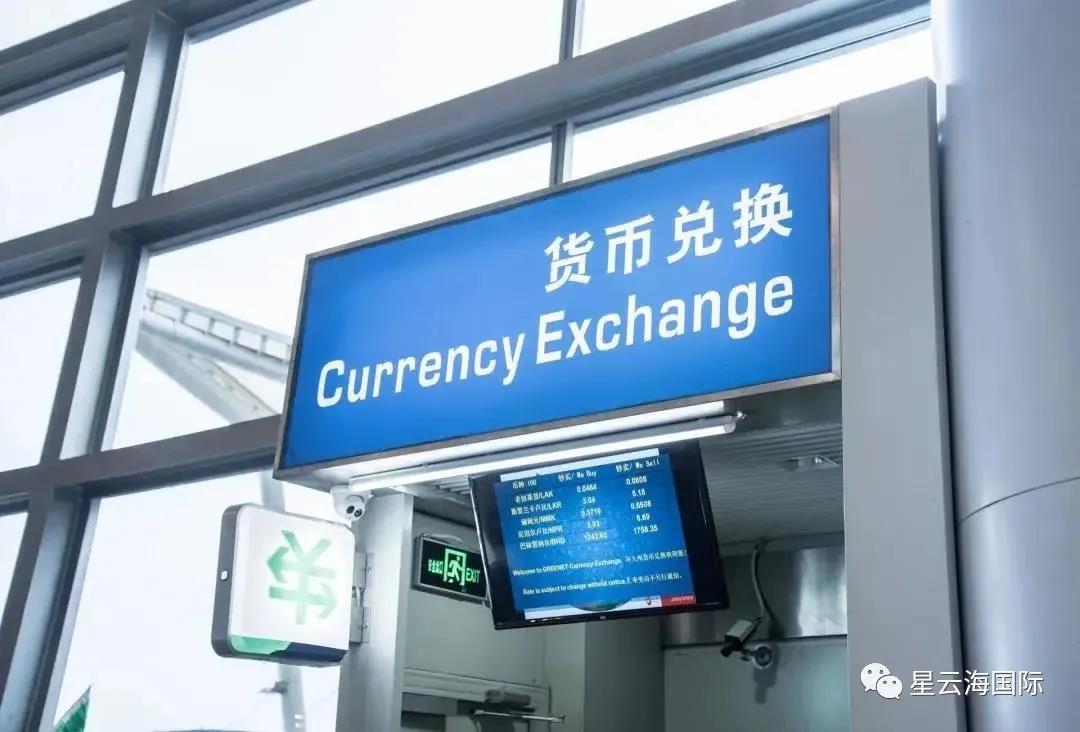A signal that is more conducive to the global asset allocation of Chinese investors has appeared!
Recently, a piece of news has attracted widespread attention from the investment community!

Image source: hket
Ye Haisheng, Director of the Capital Project Management Department of the State Administration of Foreign Exchange of China, wrote in "China Foreign Exchange" that:
In 2021, the State Administration of Foreign Exchange will study the orderly relaxation of business restrictions under personal capital, and amend the management of domestic individuals participating in equity incentive plans of overseas listed companies It stipulates that the annual limit on the purchase and payment of foreign exchange will be cancelled and the management process will be optimized.
It is worth mentioning that the article also mentioned:
The State Administration of Foreign Exchange will study and demonstrate the feasibility of allowing domestic individuals to invest in overseas securities and insurance within the annual facilitation quota of US$50,000; and cooperate with the People's Bank of China to do a good job in the pilot project of "Li Caitong" in the Guangdong-Hong Kong-Macao Greater Bay Area.

Image source: Hong Kong Newspaper
That is to say, the relaxation of the foreign investment restrictions under the personal capital account by the Administration of Foreign Exchange may bring heavy benefits to the overseas investment of global asset allocation for individual investors!

Source: Sina Finance
Wen Bin: Chief Researcher of China Minsheng Bank
It is understood that since 2007, the SAFE has implemented relevant management measures for the annual total amount of individual foreign exchange purchases and settlements:
Individuals have a facilitation exchange quota of US$50,000 per year. Residents can apply for foreign exchange purchases on demand, but the application for foreign exchange purchases clearly emphasizes "It shall not be used for unopened capital projects such as overseas house purchase, securities investment, purchase of life insurance, and investment return and dividend insurance."
Resident individuals who want to invest in overseas securities can only use QDII products issued by domestic financial institutions or the Shanghai-Shenzhen-Hong Kong Stock Connect channel.

Source: asia business law journal
In the second half of last year, the the unilateral rapid appreciation of the RMB against the US dollar was due to my country’s rapid and successful control In response to the epidemic, the economic growth gap between China and foreign countries and the spread of interest rates between China and foreign countries have rapidly widened. A large amount of short-term international capital has flowed into the country. Coupled with the accelerated opening of China's financial market to foreign institutional investors, large-scale securities investment inflows have been attracted.

Image source: nyt
Under this background, what impact will it have on cross-border funds and the overseas investment market?
Cross-border capital:
This policy will make cross-border capital more present a trend of two-way fluctuations.
While cross-border funds are coming in, increase the means for cross-border funds to go out. The flow of cross-border capital will be in a balanced situation with inflows and outflows. It is also conducive to maintaining the basic stability of the RMB exchange rate at a reasonable and equilibrium level.

Foreign exchange market:
If the overseas investment policy is relaxed, it will greatly increase the demand for individual overseas investment in the foreign exchange market.It is of great significance to alleviate the current pressure on RMB exchange rate appreciation. Overseas investment will also receive greater policy dividends, which will help domestic individual investors in the global allocation of assets, making overseas investment more convenient and obtaining higher returns.

Risk supervision:
In addition, while the capital account is opened to the outside world in an orderly manner, in fact, we must also pay attention to preventing the risks of cross-border capital flows. strong> And setting the quota at 50,000 US dollars also means that the potential cross-border capital flow risk is controlled within an acceptable and controlled range.

Since the release of the Greater Bay Area plan, cross-border insurance, securities, funds and other financial management projects have been quickly mentioned, but they are generally restricted by foreign exchange control items. If this policy is implemented, many problems will be solved.
The current policy is still in the stage of "studying and demonstrating the feasibility". It will take time for this policy to be implemented, and it is quite worth looking forward to.

With the increase in the income level of Chinese residents, the importance of personal asset allocation has become more and more widely known, and the demand for global asset allocation has also risen. With this favorable policy, individual investors in my country will have more diversified choices when investing overseas in the future!
source | China Foreign Exchange, China Financial Research Institute
Xingyunhai International
SING YUN

Singapore Family Office
According to the relevant regulations of Singapore: the applicant sets up a family office in Singapore and can incur a fee of S$200,000 per year. The family office can provide Singapore Application for permanent residency status.
By configuring and managing assets in Singapore, let family members serve as senior managers in the family office and obtain an EP Employment Pass, about two years later Can apply for permanent residence status (PR) for the whole family.
Application conditions
★ There are no age, education, or language requirements for applicants.
★ Applicant's net worth of personal assets is not less than 20 million SGD.
★ Invest at least S$10 million in financial institutions under the management of the Singapore Monetary Authority to purchase properties and financial products in Singapore, including financial products no less than S$8 million The property does not exceed SGD 2 million.



























 Cyprus
Cyprus Turkey
Turkey Saint Kitts and Nevis
Saint Kitts and Nevis Greece
Greece
